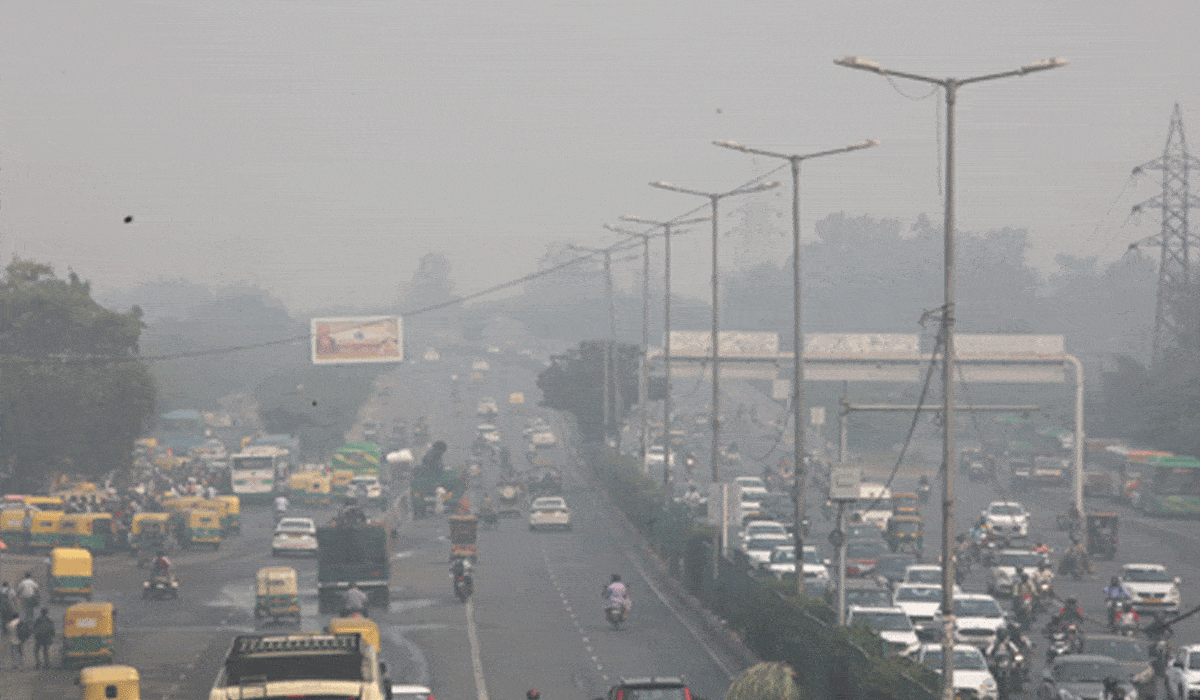No relief from toxic air in Delhi-NCR, AQI crosses 400 in Greater Noida and Ghaziabad
Air pollution in the Delhi-NCR continues to remain at dangerous levels. According to data from the Central Pollution Control Board (CPCB) and the Meteorological Department, the Air Quality Index (AQI) in most cities in the national capital region has crossed 400 on Tuesday, placing them in the ‘severe’ category.

Noida: Air pollution in the Delhi-NCR continues to remain at dangerous levels. According to data from the Central Pollution Control Board (CPCB) and the Meteorological Department, the Air Quality Index (AQI) in most cities in the national capital region has crossed 400 on Tuesday, placing them in the ‘severe’ category.
Air quality in this range is extremely harmful not only for people suffering from asthma, heart conditions, and lung diseases, but also poses serious health risks to otherwise healthy individuals.
The situation in Ghaziabad and Greater Noida is steadily worsening. Greater Noida recorded an AQI of 430, making it one of the most polluted cities in the region.
Also Read: Two Delhi schools, 3 courts receive bomb threats; premises evacuated
Several monitoring stations in Ghaziabad reported AQI levels between 404 and 438, the worst readings this season. Noida and Delhi are also witnessing severe pollution. In Noida, areas such as Sector 125, Sector 1, and Sector 116 recorded AQI levels ranging from 324 to 402.
In Delhi, localities, including Anand Vihar, Bawana, Chandni Chowk, and Alipur, reported pollution levels between 350 and 426, making breathing increasingly difficult for those with health conditions.
While it was hoped that a change in weather conditions would offer some relief, the latest report from the India Meteorological Department (IMD) indicated that no major changes are expected in the coming days. There are no signs of increased wind speed, nor is rainfall likely.
Over the next week, the maximum temperature is likely to remain around 26 degrees Celsius and the minimum around 11 degrees Celsius, with fog predicted on most days. Experts said that cold and stable winds trap pollutants close to the ground, while fog increases their density, potentially pushing AQI levels even higher.
Health experts have urged residents to avoid unnecessary outdoor activities, wear masks, take special care of children and the elderly, and avoid morning and evening walks when pollution is at its peak. Meanwhile, pressure is mounting on government agencies and local authorities to implement stronger measures to curb the worsening air pollution crisis.
